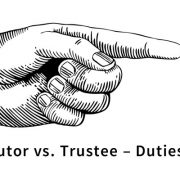Do I need a Living Will?
Cleveland, Ohio estate planning attorney, Daniel A. Baron, offers the following regarding living wills:
Before you can answer this question you must first understand what a Living will is and what purpose it serves.
A Living Will is one form of Advance Directive which clearly defines your wishes for medical care should the following occur:
- You are in a persistent vegetative state or perhaps you slip into an irreversible coma
- Your become terminally ill and without the help of life support, you will end up passing away within a short period of time
A Living Will clearly states your health care intentions. This document allows you to make decisions while still cognitive such as:
- Whether or not you wish to be put on life support, even if for a very short time
- Would you would like to receive pain medication of any kind
- Is it you desire to have any nutrition available by means of a feeding tube
The Living Will document also allows you to list any further specific instructions for your care if you become fully incapacitated.
Another form to consider securing in conjunction with a Living Will is a Health Care Proxy which is a specific Power of Attorney. A Health Care Power of Attorney authorizes a specific person you have chosen to act on your behalf to make all medical decisions (or to make sure that your medical wishes in your Living Will that you have set forth are followed), in the eventuality that you are no longer able to make these decisions yourself.
It might be in your best interested to have both a Living Will and a Power of Attorney which will set forth comprehensive guidance when it comes to your medical care in the end stages of life.
Things to consider when completing these documents:
- Who do I want and trust to make my health care decisions when I am no longer capable of making them on my own?
- What kind of medical treatment DO I or DON’T I want?
- How comfortable do I want to be when my life’s journey is coming to an end?
- How do I want people to treat me?
- What do I want my loved ones to know?
Having a Living Will is only one part to a comprehensive estate plan. For information regarding living wills, trusts, power of attorney, or a pour-over will, contact Dan Baron of Baron Law to make an appointment at 216-573-3723.





